Evolution And Adaptation Quotes & Sayings
Enjoy reading and share 37 famous quotes about Evolution And Adaptation with everyone.
Top Evolution And Adaptation Quotes
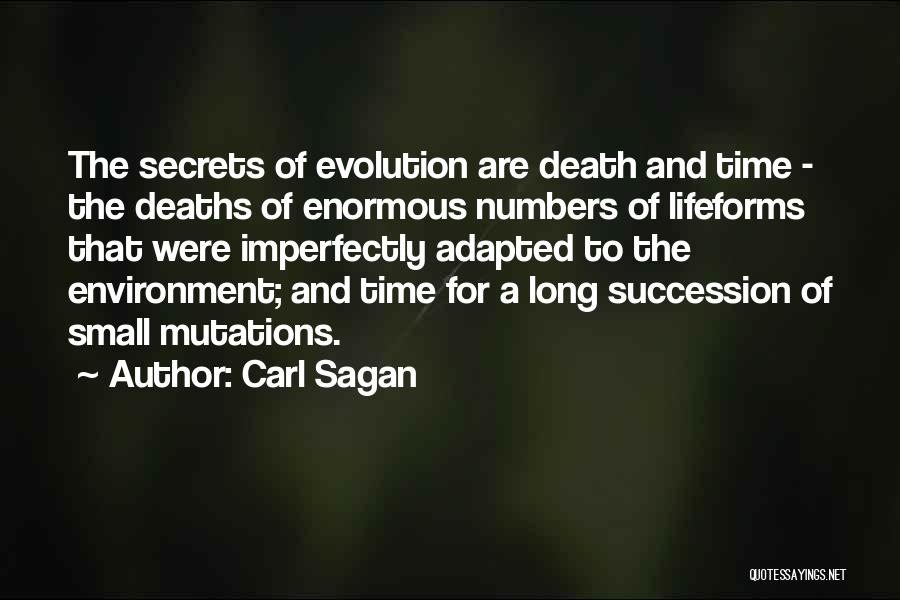
The secrets of evolution are death and time - the deaths of enormous numbers of lifeforms that were imperfectly adapted to the environment; and time for a long succession of small mutations. — Carl Sagan
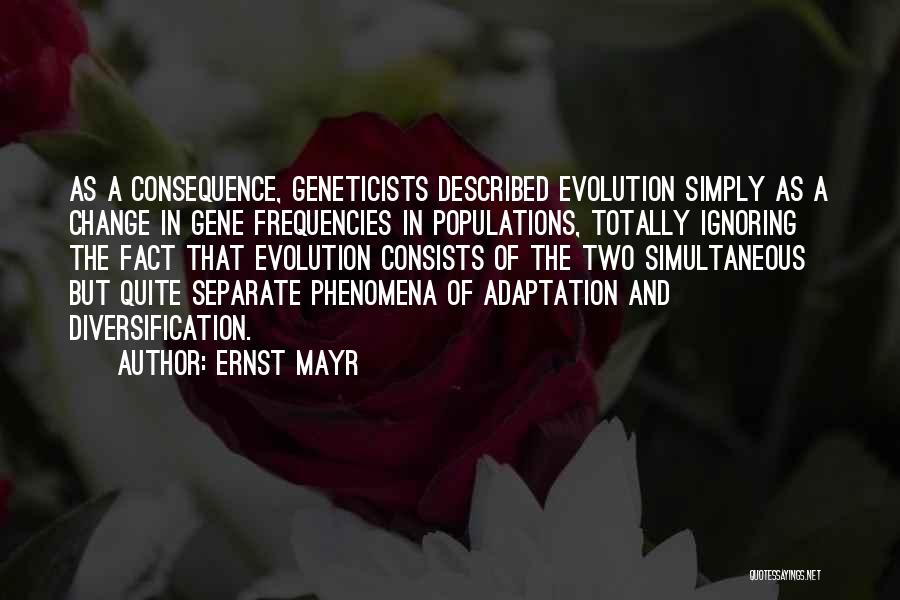
As a consequence, geneticists described evolution simply as a change in gene frequencies in populations, totally ignoring the fact that evolution consists of the two simultaneous but quite separate phenomena of adaptation and diversification. — Ernst Mayr
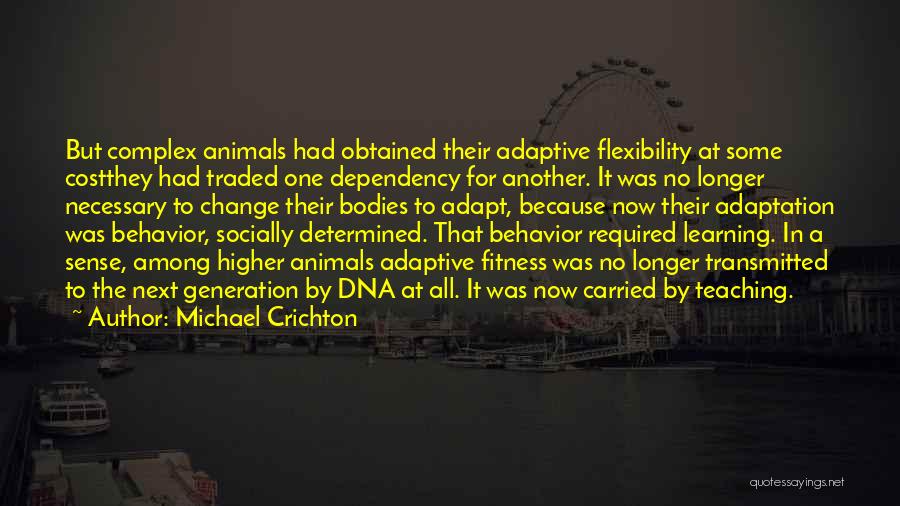
But complex animals had obtained their adaptive flexibility at some cost
they had traded one dependency for another. It was no longer necessary to change their bodies to adapt, because now their adaptation was behavior, socially determined. That behavior required learning. In a sense, among higher animals adaptive fitness was no longer transmitted to the next generation by DNA at all. It was now carried by teaching. — Michael Crichton
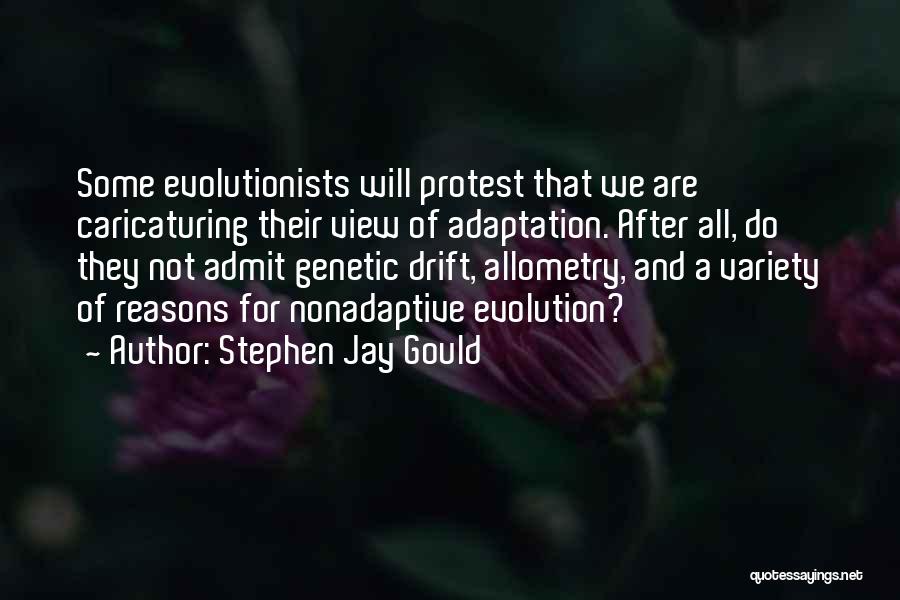
Some evolutionists will protest that we are caricaturing their view of adaptation. After all, do they not admit genetic drift, allometry, and a variety of reasons for nonadaptive evolution? — Stephen Jay Gould
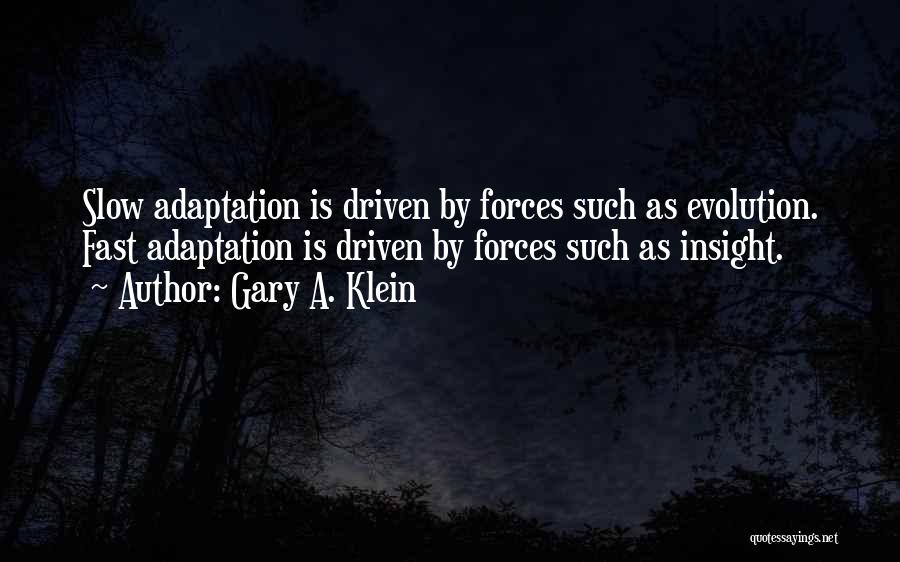
Slow adaptation is driven by forces such as evolution. Fast adaptation is driven by forces such as insight. — Gary A. Klein
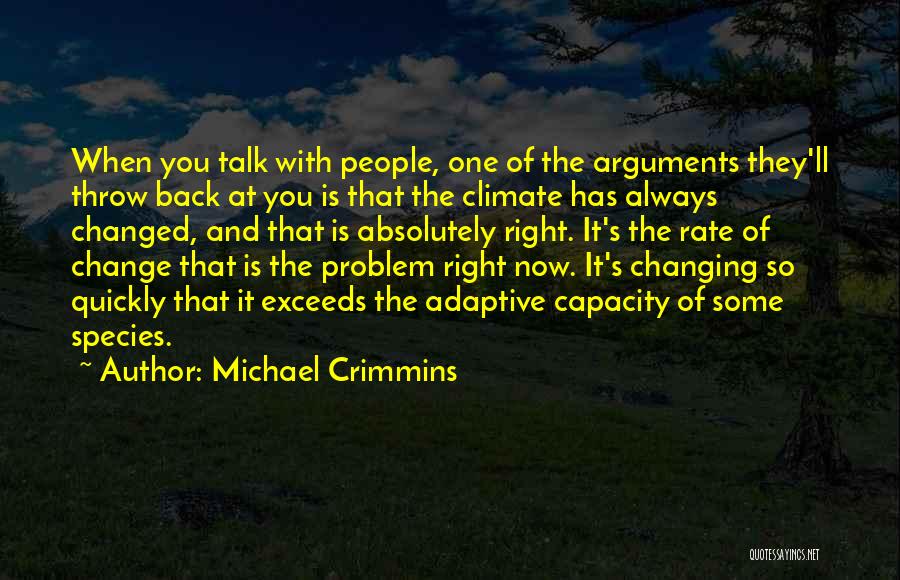
When you talk with people, one of the arguments they'll throw back at you is that the climate has always changed, and that is absolutely right. It's the rate of change that is the problem right now. It's changing so quickly that it exceeds the adaptive capacity of some species. — Michael Crimmins
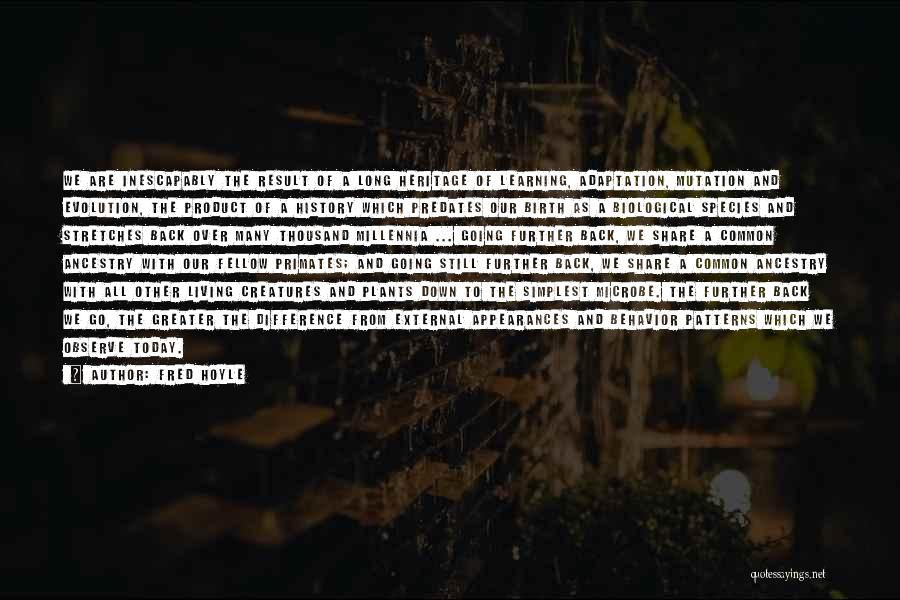
We are inescapably the result of a long heritage of learning, adaptation, mutation and evolution, the product of a history which predates our birth as a biological species and stretches back over many thousand millennia ... Going further back, we share a common ancestry with our fellow primates; and going still further back, we share a common ancestry with all other living creatures and plants down to the simplest microbe. The further back we go, the greater the difference from external appearances and behavior patterns which we observe today. — Fred Hoyle
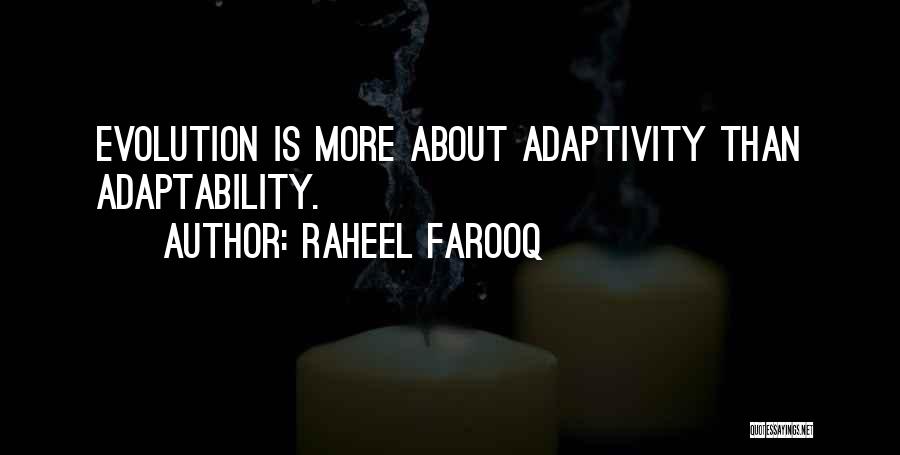
Evolution is more about adaptivity than adaptability. — Raheel Farooq
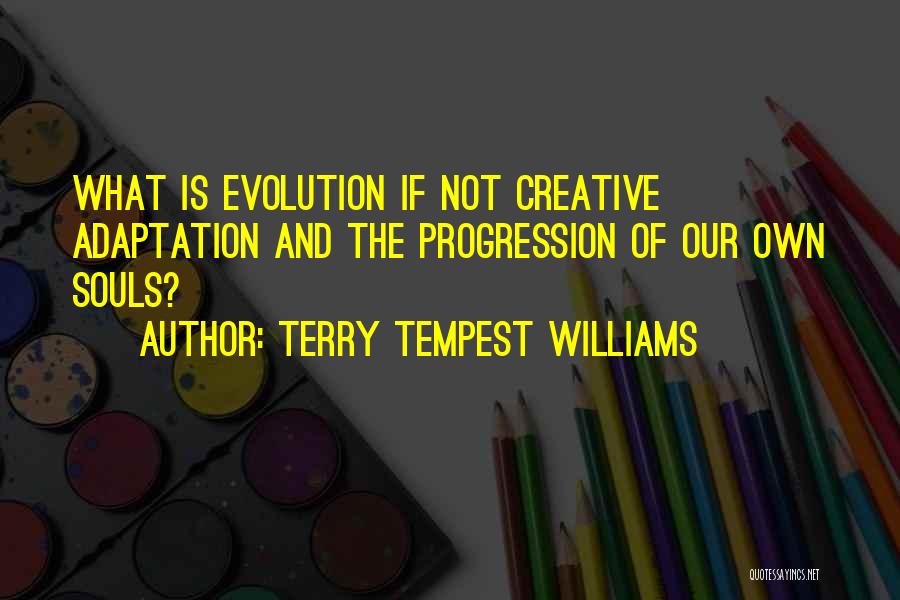
What is evolution if not creative adaptation and the progression of our own souls? — Terry Tempest Williams
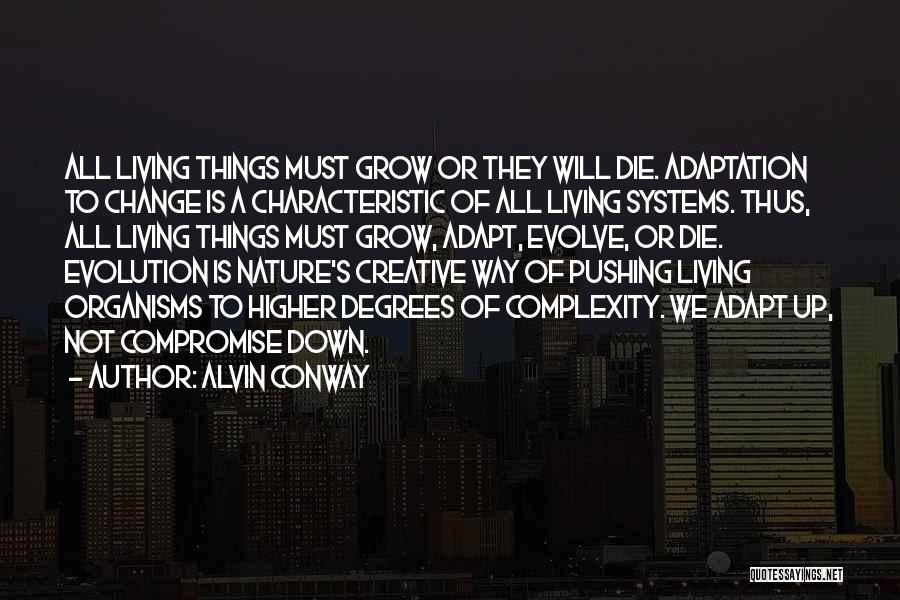
All living things must grow or they will die. Adaptation to change is a characteristic of all living systems. Thus, all living things must grow, adapt, evolve, or die. Evolution is nature's creative way of pushing living organisms to higher degrees of complexity. We adapt up, not compromise down. — Alvin Conway
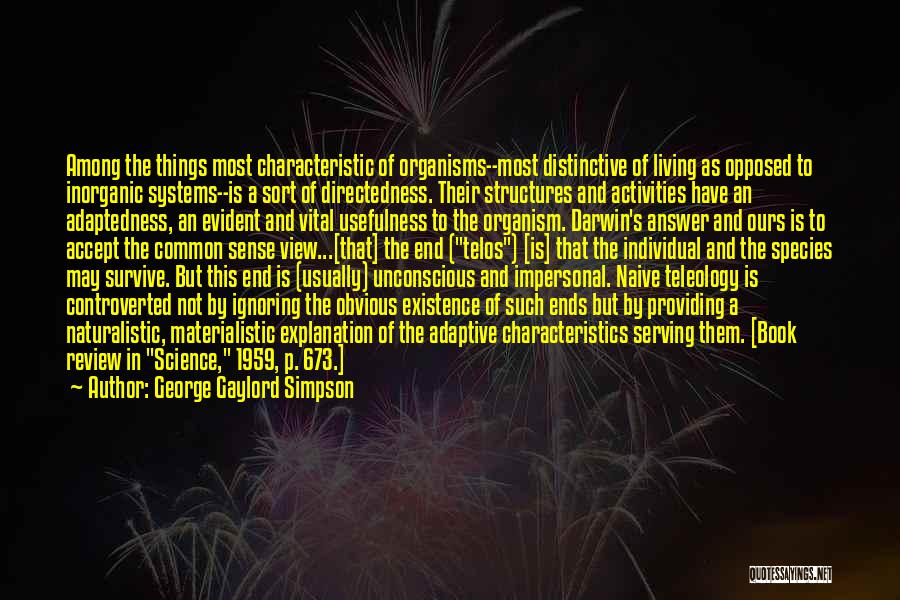
Among the things most characteristic of organisms--most distinctive of living as opposed to inorganic systems--is a sort of directedness. Their structures and activities have an adaptedness, an evident and vital usefulness to the organism. Darwin's answer and ours is to accept the common sense view...[that] the end ("telos") [is] that the individual and the species may survive. But this end is (usually) unconscious and impersonal. Naive teleology is controverted not by ignoring the obvious existence of such ends but by providing a naturalistic, materialistic explanation of the adaptive characteristics serving them. [Book review in "Science," 1959, p. 673.] — George Gaylord Simpson
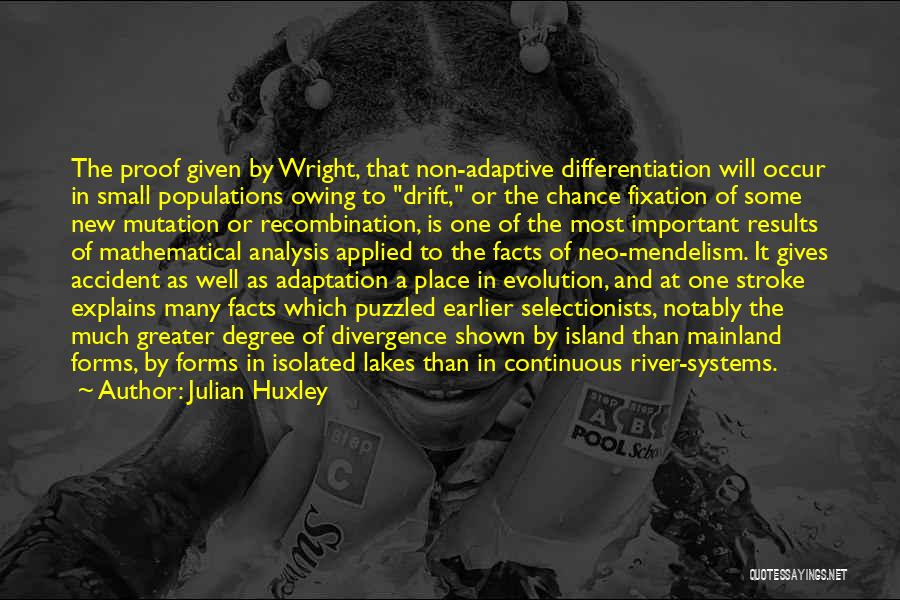
The proof given by Wright, that non-adaptive differentiation will occur in small populations owing to "drift," or the chance fixation of some new mutation or recombination, is one of the most important results of mathematical analysis applied to the facts of neo-mendelism. It gives accident as well as adaptation a place in evolution, and at one stroke explains many facts which puzzled earlier selectionists, notably the much greater degree of divergence shown by island than mainland forms, by forms in isolated lakes than in continuous river-systems. — Julian Huxley
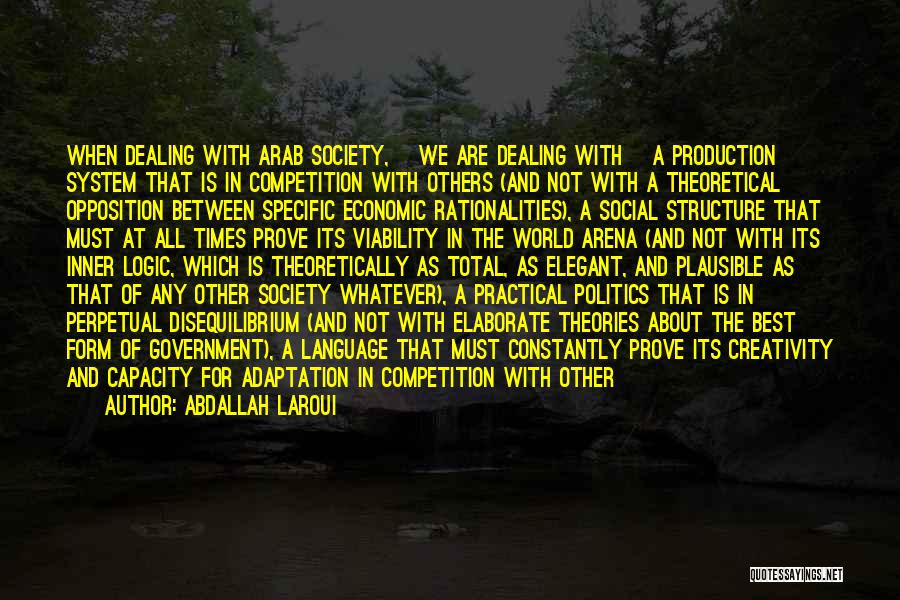
When dealing with Arab society, [we are dealing with] a production system that is in competition with others (and not with a theoretical opposition between specific economic rationalities), a social structure that must at all times prove its viability in the world arena (and not with its inner logic, which is theoretically as total, as elegant, and plausible as that of any other society whatever), a practical politics that is in perpetual disequilibrium (and not with elaborate theories about the best form of government), a language that must constantly prove its creativity and capacity for adaptation in competition with other languages in an accelerating evolutionary situation (and not with a theory of the language at a given moment of its evolution). — Abdallah Laroui
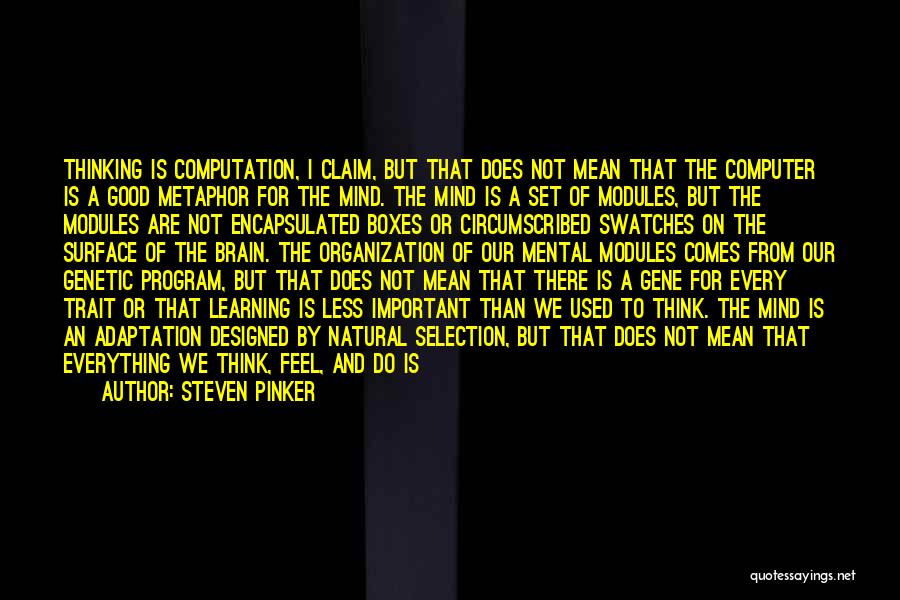
Thinking is computation, I claim, but that does not mean that the computer is a good metaphor for the mind. The mind is a set of modules, but the modules are not encapsulated boxes or circumscribed swatches on the surface of the brain. The organization of our mental modules comes from our genetic program, but that does not mean that there is a gene for every trait or that learning is less important than we used to think. The mind is an adaptation designed by natural selection, but that does not mean that everything we think, feel, and do is biologically adaptive. We evolved from apes, but that does not mean we have the same minds as apes. And the ultimate goal of natural selection is to propagate genes, but that does not mean that the ultimate goal of people is to propagate genes. — Steven Pinker
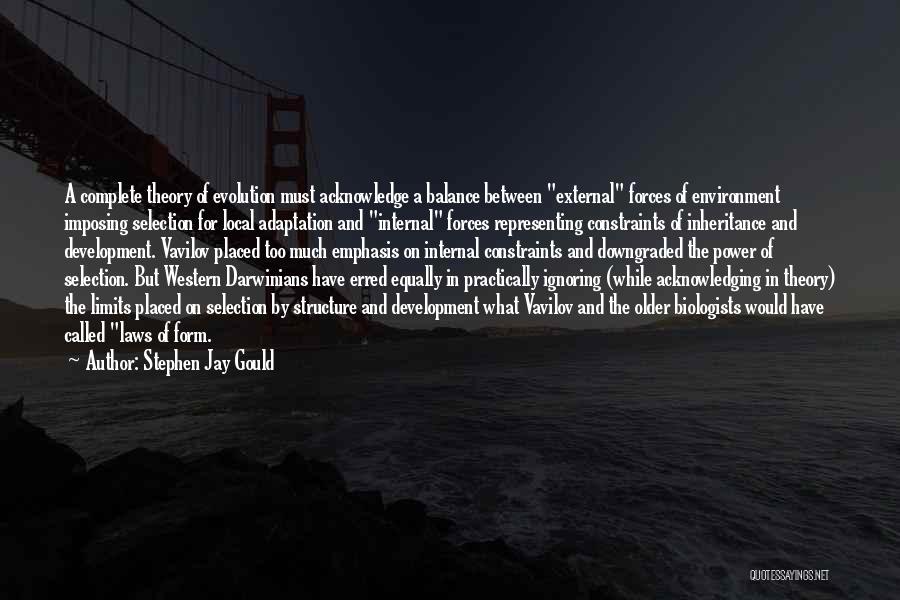
A complete theory of evolution must acknowledge a balance between "external" forces of environment imposing selection for local adaptation and "internal" forces representing constraints of inheritance and development. Vavilov placed too much emphasis on internal constraints and downgraded the power of selection. But Western Darwinians have erred equally in practically ignoring (while acknowledging in theory) the limits placed on selection by structure and development what Vavilov and the older biologists would have called "laws of form. — Stephen Jay Gould
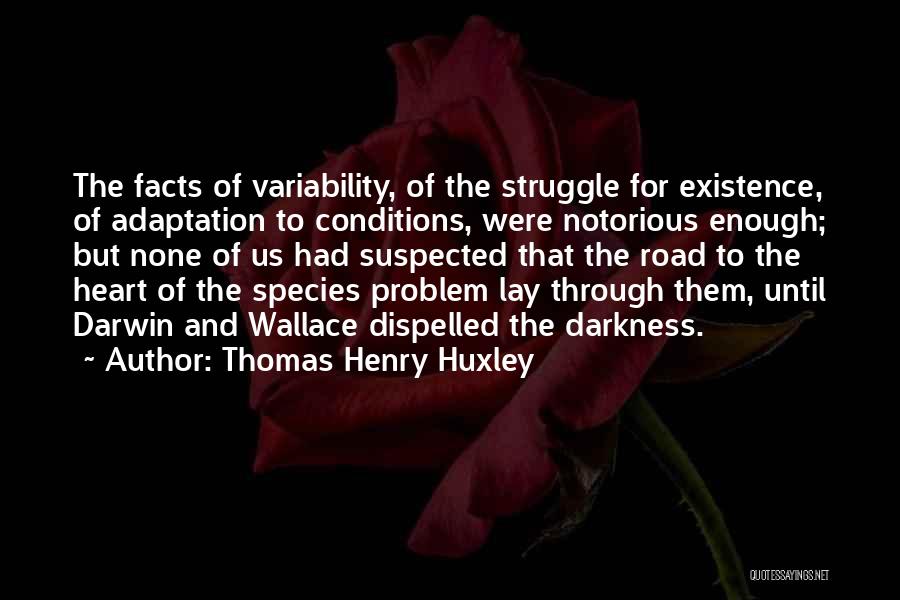
The facts of variability, of the struggle for existence, of adaptation to conditions, were notorious enough; but none of us had suspected that the road to the heart of the species problem lay through them, until Darwin and Wallace dispelled the darkness. — Thomas Henry Huxley
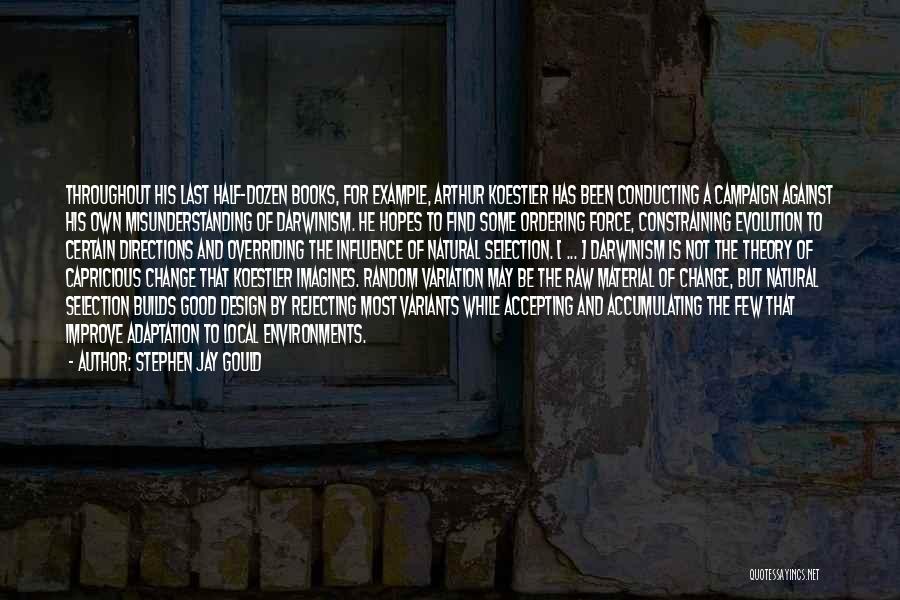
Throughout his last half-dozen books, for example, Arthur Koestler has been conducting a campaign against his own misunderstanding of Darwinism. He hopes to find some ordering force, constraining evolution to certain directions and overriding the influence of natural selection. [ ... ] Darwinism is not the theory of capricious change that Koestler imagines. Random variation may be the raw material of change, but natural selection builds good design by rejecting most variants while accepting and accumulating the few that improve adaptation to local environments. — Stephen Jay Gould
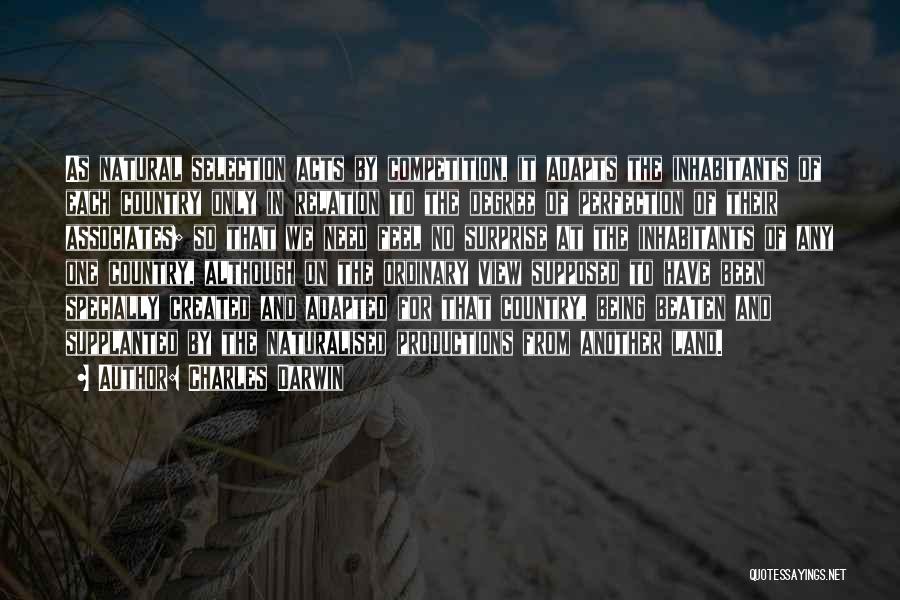
As natural selection acts by competition, it adapts the inhabitants of each country only in relation to the degree of perfection of their associates; so that we need feel no surprise at the inhabitants of any one country, although on the ordinary view supposed to have been specially created and adapted for that country, being beaten and supplanted by the naturalised productions from another land. — Charles Darwin
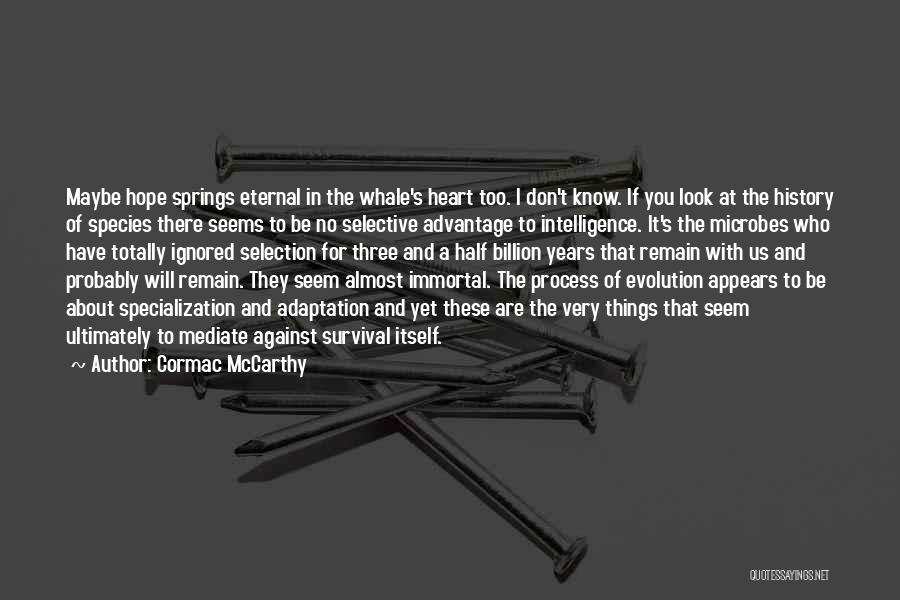
Maybe hope springs eternal in the whale's heart too. I don't know. If you look at the history of species there seems to be no selective advantage to intelligence. It's the microbes who have totally ignored selection for three and a half billion years that remain with us and probably will remain. They seem almost immortal. The process of evolution appears to be about specialization and adaptation and yet these are the very things that seem ultimately to mediate against survival itself. — Cormac McCarthy
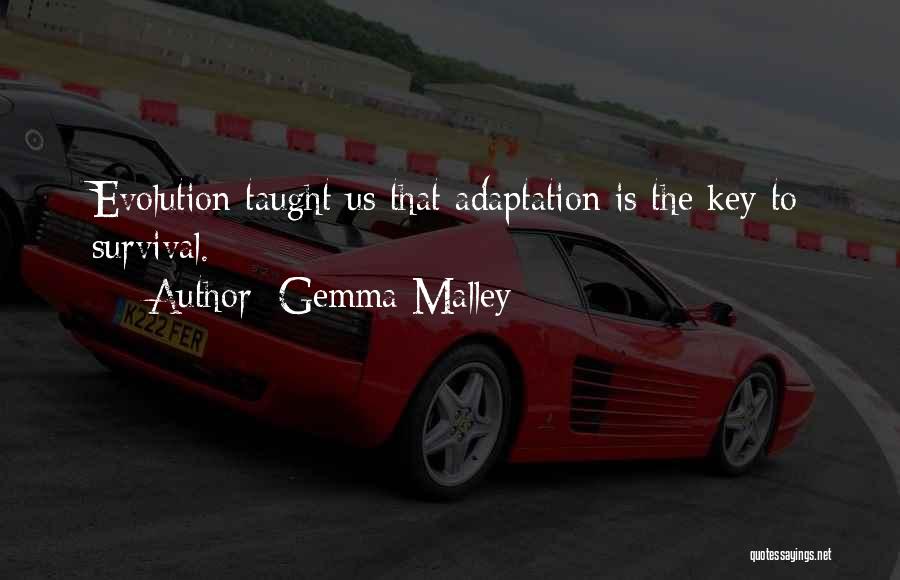
Evolution taught us that adaptation is the key to survival. — Gemma Malley
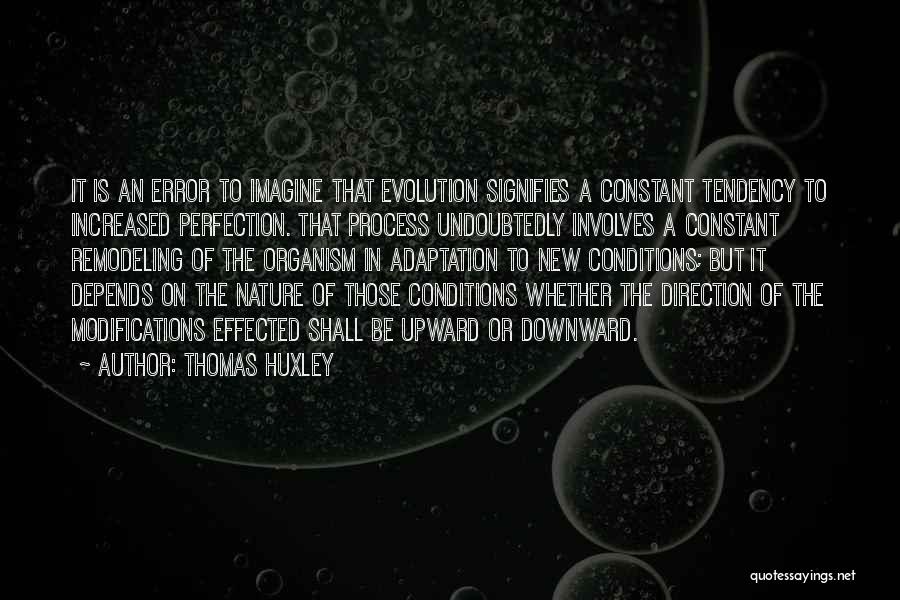
It is an error to imagine that evolution signifies a constant tendency to increased perfection. That process undoubtedly involves a constant remodeling of the organism in adaptation to new conditions; but it depends on the nature of those conditions whether the direction of the modifications effected shall be upward or downward. — Thomas Huxley
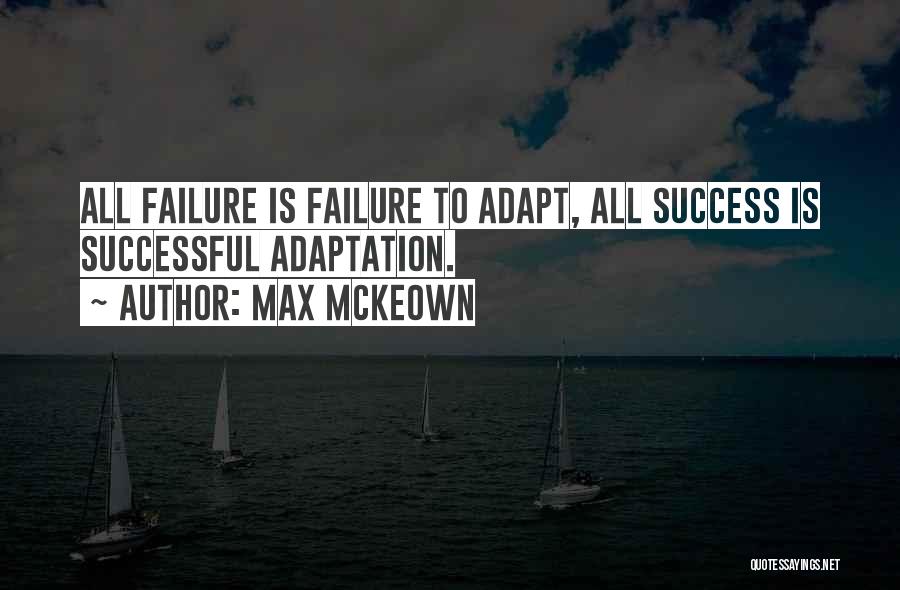
All failure is failure to adapt, all success is successful adaptation. — Max McKeown
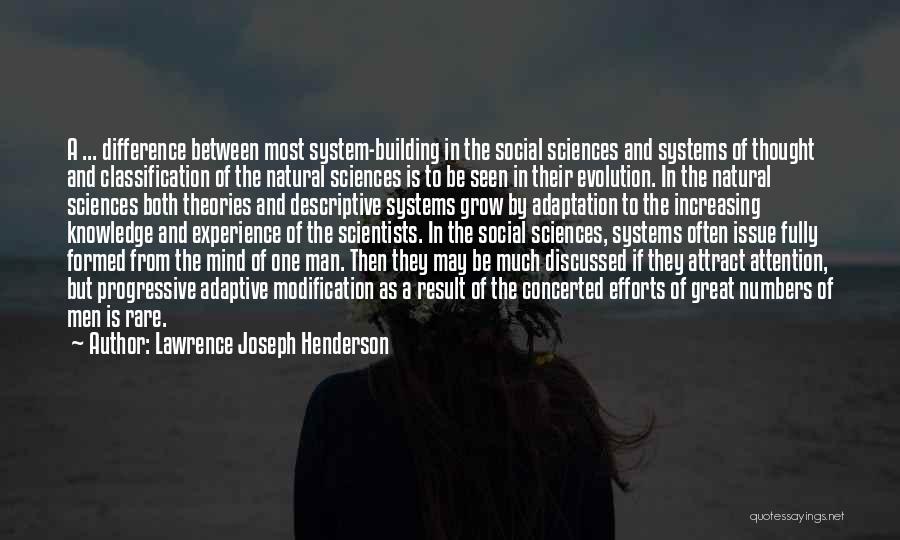
A ... difference between most system-building in the social sciences and systems of thought and classification of the natural sciences is to be seen in their evolution. In the natural sciences both theories and descriptive systems grow by adaptation to the increasing knowledge and experience of the scientists. In the social sciences, systems often issue fully formed from the mind of one man. Then they may be much discussed if they attract attention, but progressive adaptive modification as a result of the concerted efforts of great numbers of men is rare. — Lawrence Joseph Henderson
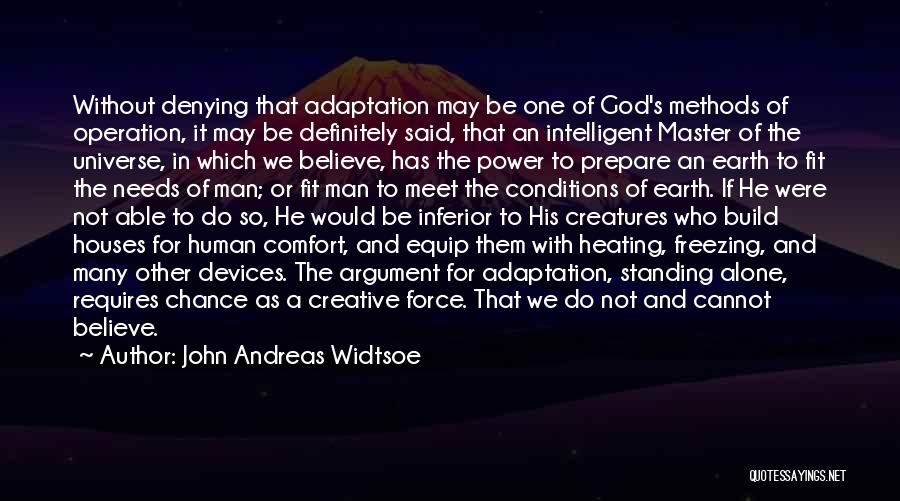
Without denying that adaptation may be one of God's methods of operation, it may be definitely said, that an intelligent Master of the universe, in which we believe, has the power to prepare an earth to fit the needs of man; or fit man to meet the conditions of earth. If He were not able to do so, He would be inferior to His creatures who build houses for human comfort, and equip them with heating, freezing, and many other devices. The argument for adaptation, standing alone, requires chance as a creative force. That we do not and cannot believe. — John Andreas Widtsoe
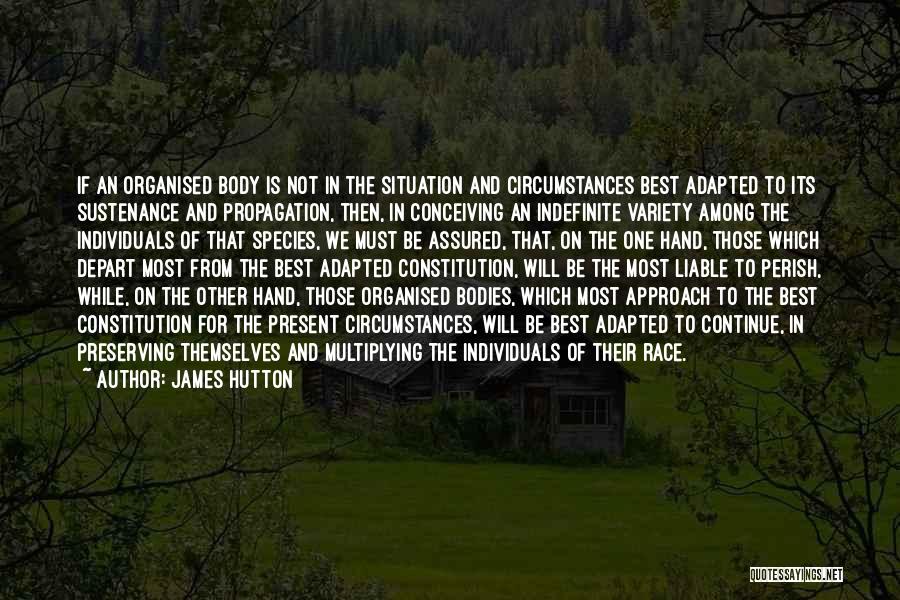
If an organised body is not in the situation and circumstances best adapted to its sustenance and propagation, then, in conceiving an indefinite variety among the individuals of that species, we must be assured, that, on the one hand, those which depart most from the best adapted constitution, will be the most liable to perish, while, on the other hand, those organised bodies, which most approach to the best constitution for the present circumstances, will be best adapted to continue, in preserving themselves and multiplying the individuals of their race. — James Hutton
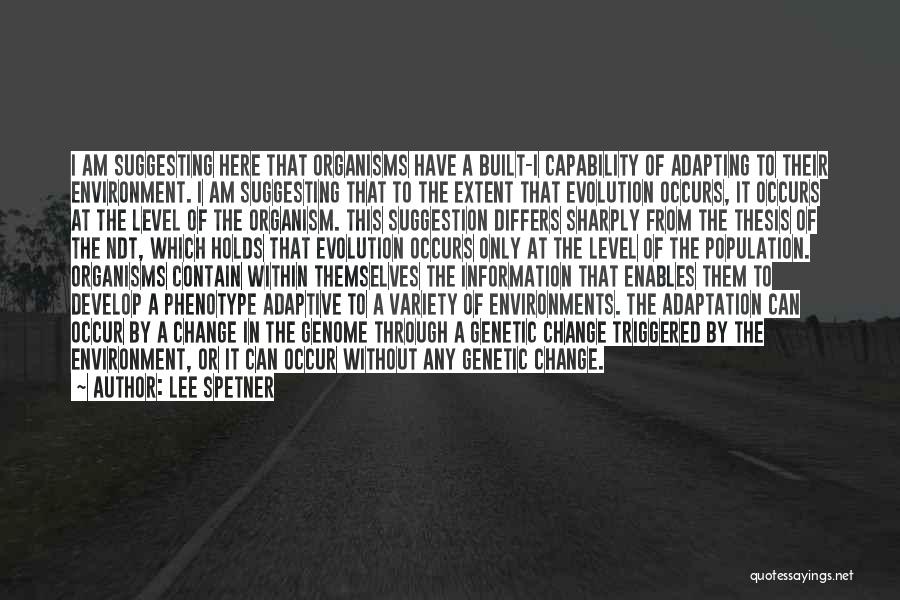
I am suggesting here that organisms have a built-I capability of adapting to their environment. I am suggesting that to the extent that evolution occurs, it occurs at the level of the organism. This suggestion differs sharply from the thesis of the NDT, which holds that evolution occurs only at the level of the population. Organisms contain within themselves the information that enables them to develop a phenotype adaptive to a variety of environments. The adaptation can occur by a change in the genome through a genetic change triggered by the environment, or it can occur without any genetic change. — Lee Spetner
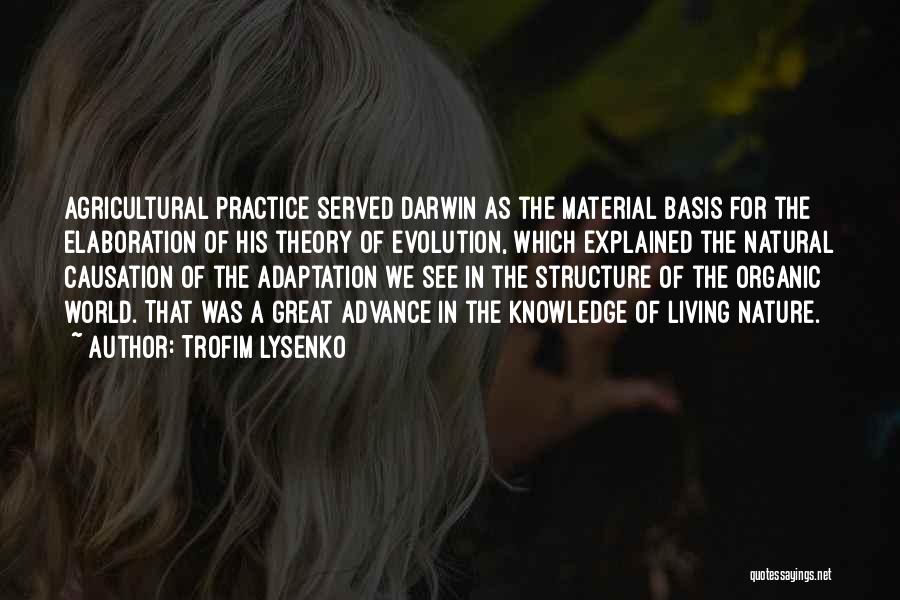
Agricultural practice served Darwin as the material basis for the elaboration of his theory of Evolution, which explained the natural causation of the adaptation we see in the structure of the organic world. That was a great advance in the knowledge of living nature. — Trofim Lysenko
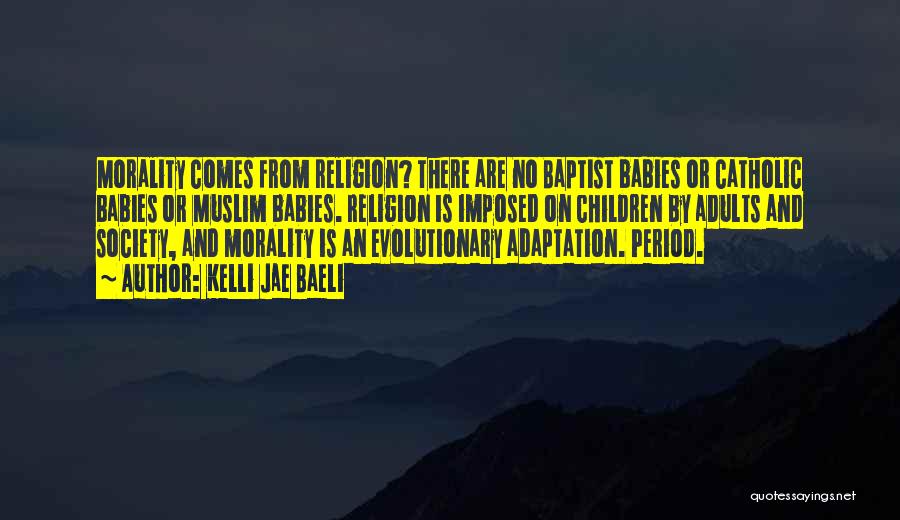
Morality comes from religion? There are no Baptist babies or Catholic babies or Muslim babies. Religion is imposed on children by adults and society, and morality is an evolutionary adaptation. Period. — Kelli Jae Baeli
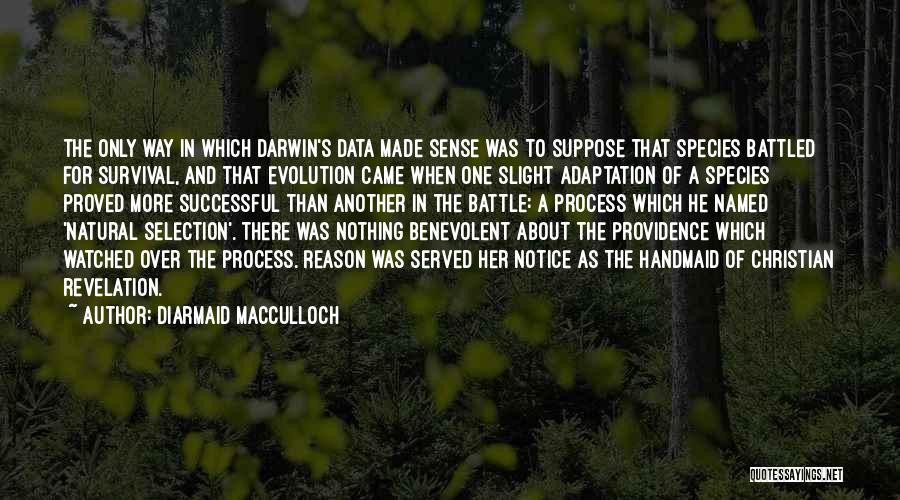
The only way in which Darwin's data made sense was to suppose that species battled for survival, and that evolution came when one slight adaptation of a species proved more successful than another in the battle: a process which he named 'natural selection'. There was nothing benevolent about the providence which watched over the process. Reason was served her notice as the handmaid of Christian revelation. — Diarmaid MacCulloch
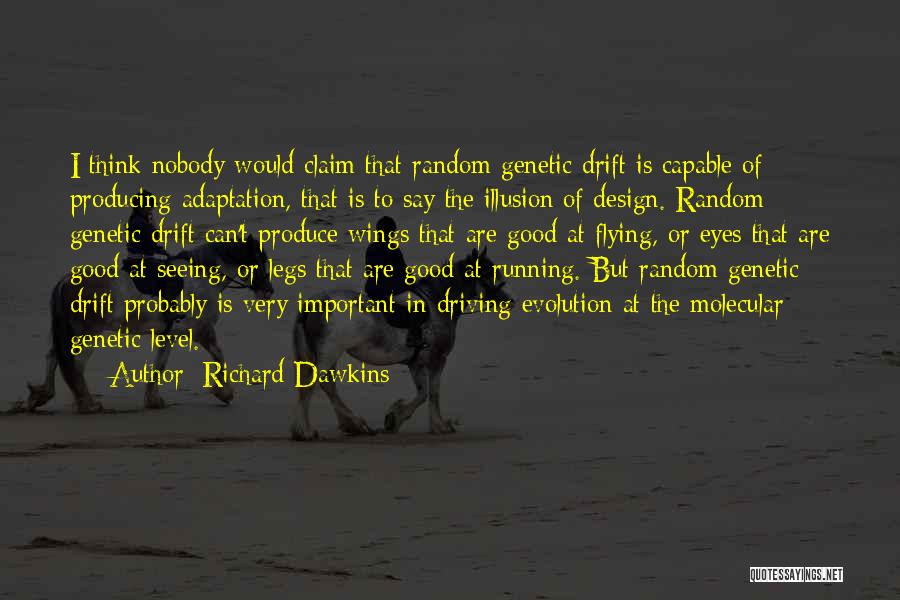
I think nobody would claim that random genetic drift is capable of producing adaptation, that is to say the illusion of design. Random genetic drift can't produce wings that are good at flying, or eyes that are good at seeing, or legs that are good at running. But random genetic drift probably is very important in driving evolution at the molecular genetic level. — Richard Dawkins
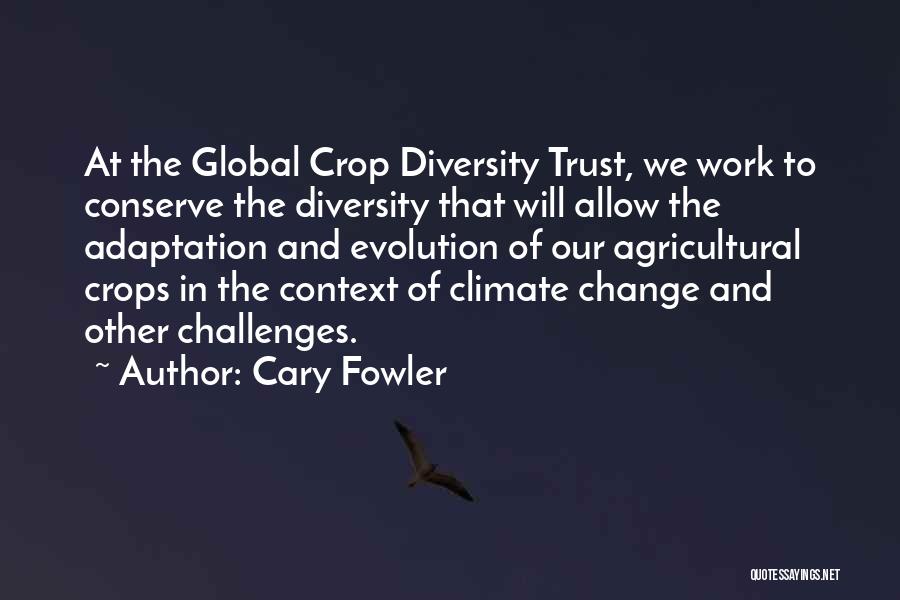
At the Global Crop Diversity Trust, we work to conserve the diversity that will allow the adaptation and evolution of our agricultural crops in the context of climate change and other challenges. — Cary Fowler
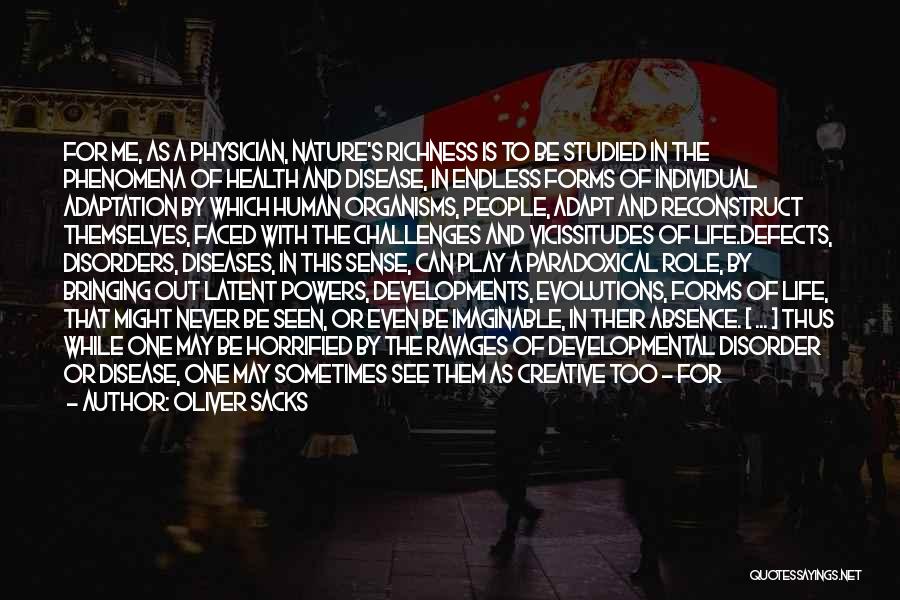
For me, as a physician, nature's richness is to be studied in the phenomena of health and disease, in endless forms of individual adaptation by which human organisms, people, adapt and reconstruct themselves, faced with the challenges and vicissitudes of life.
Defects, disorders, diseases, in this sense, can play a paradoxical role, by bringing out latent powers, developments, evolutions, forms of life, that might never be seen, or even be imaginable, in their absence. [ ... ] Thus while one may be horrified by the ravages of developmental disorder or disease, one may sometimes see them as creative too - for it they destroy particular paths, particular ways of doing things, they may force the nervous system into making other paths and ways, force on it an unexpected growth and evolution. — Oliver Sacks
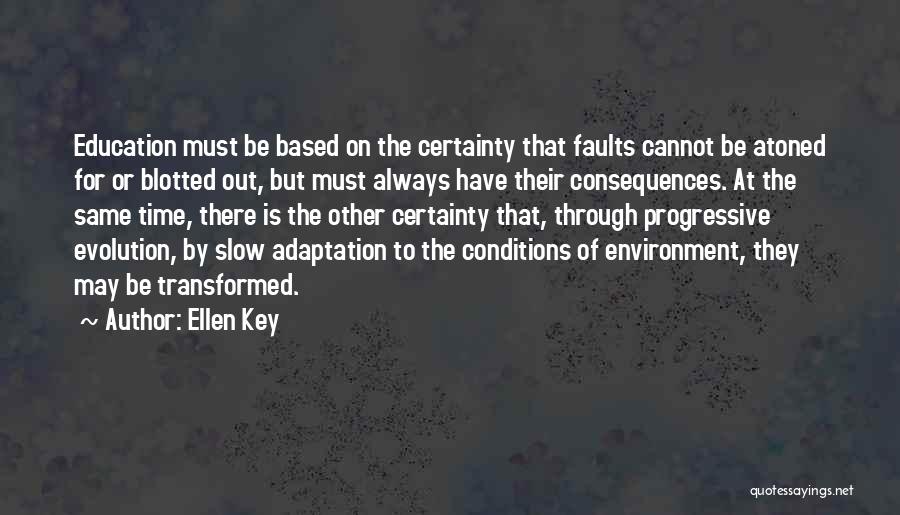
Education must be based on the certainty that faults cannot be atoned for or blotted out, but must always have their consequences. At the same time, there is the other certainty that, through progressive evolution, by slow adaptation to the conditions of environment, they may be transformed. — Ellen Key
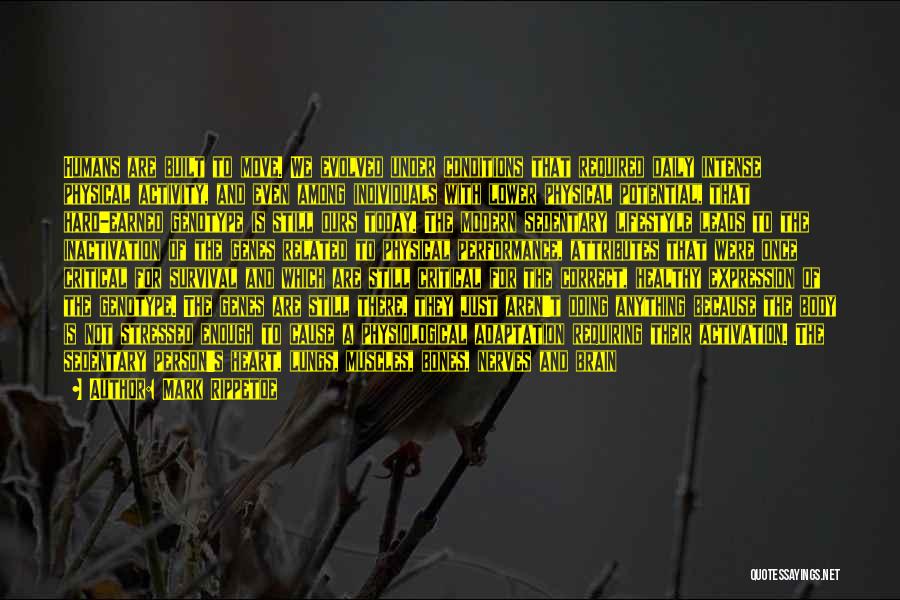
Humans are built to move. We evolved under conditions that required daily intense physical activity, and even among individuals with lower physical potential, that hard-earned genotype is still ours today. The modern sedentary lifestyle leads to the inactivation of the genes related to physical performance, attributes that were once critical for survival and which are still critical for the correct, healthy expression of the genotype. The genes are still there, they just aren't doing anything because the body is not stressed enough to cause a physiological adaptation requiring their activation. The sedentary person's heart, lungs, muscles, bones, nerves and brain all operate far below the level at which they evolved to function, and at which they still function best. — Mark Rippetoe
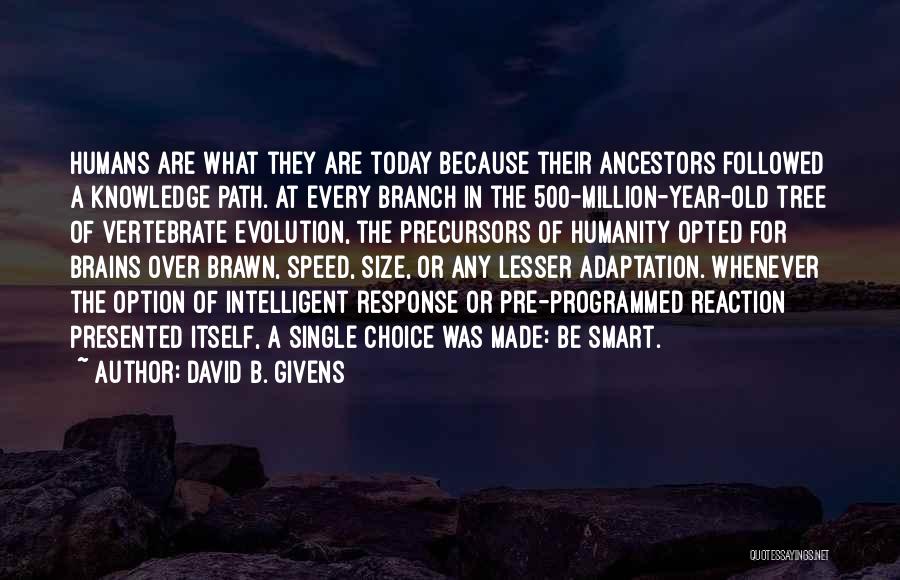
Humans are what they are today because their ancestors followed a knowledge path. At every branch in the 500-million-year-old tree of vertebrate evolution, the precursors of humanity opted for brains over brawn, speed, size, or any lesser adaptation. Whenever the option of intelligent response or pre-programmed reaction presented itself, a single choice was made: Be smart. — David B. Givens
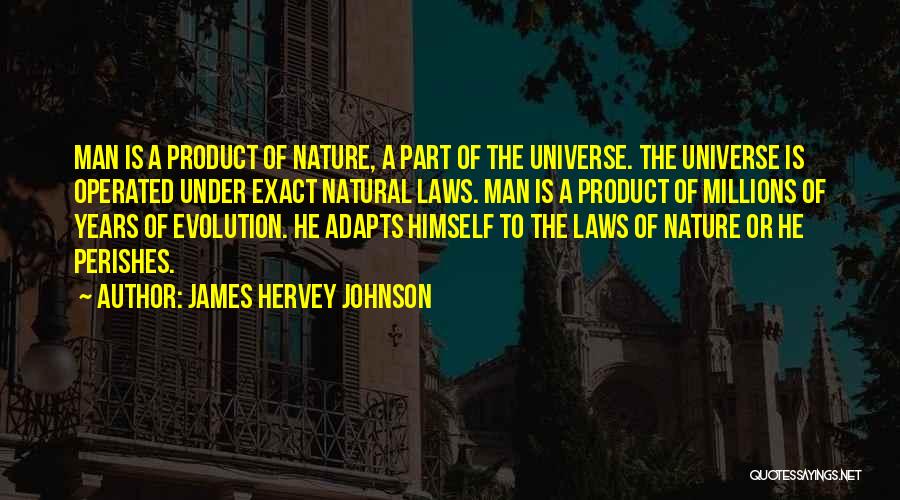
Man is a product of nature, a part of the Universe. The Universe is operated under exact natural laws. Man is a product of millions of years of evolution. He adapts himself to the laws of nature or he perishes. — James Hervey Johnson
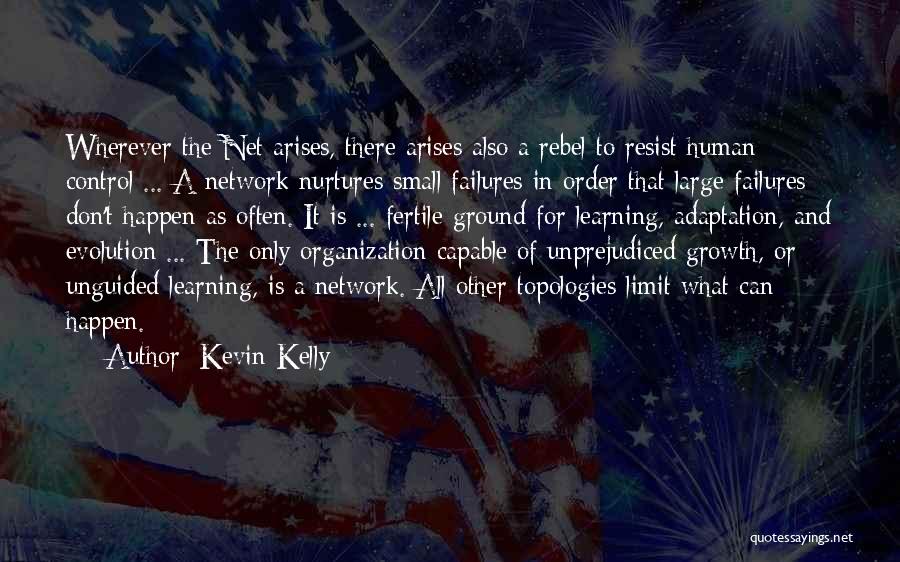
Wherever the Net arises, there arises also a rebel to resist human control ... A network nurtures small failures in order that large failures don't happen as often. It is ... fertile ground for learning, adaptation, and evolution ... The only organization capable of unprejudiced growth, or unguided learning, is a network. All other topologies limit what can happen. — Kevin Kelly





